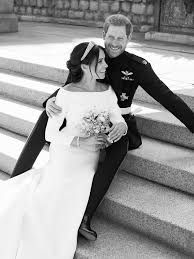
I was born in the Evangelical church. Not literally on its pews, but despite my father’s cantankerous objections, my mother planted their three children there in the unruly garden of 1970s Britain. By the time I was three, I’d learnt to sit through winding sermons, sometimes helped by a boiled sweet, sometimes a felt-tip pen and ripped page from a hymnal abandoned on a church seat.
This stood me in great stead, when inside a store on our weekly family shop, I’d witness the outburst of a poorly-behaved age-mate reprimanded by a red-faced mother. I’d wonder how thirty minutes wandering between Biscuits and Tins was such a challenge for them. Even if I’d had such an outburst in church, it would have been quickly curtailed by an adult ‘sister’ who’d move me to sit beside her. Until – horrified – I calmed down as a sort of plea deal to get back to my seat.
Evangelical sermons, and the rich parables that spawned them, also taught me the power of metaphor, something which greatly influenced my later English-teaching. To this day, my best poems can wring an analogy of every drop of blood, though subject-wise, they’re more risqué than John 15: The True Vine, one of my favourite Biblical conceits. They’re perhaps controversial to the conservative Christian, but like the Sussexes’ wedding, my poetry and spirituality are both sources of hybridity I find cause to celebrate.
Which was why Bishop Michael Curry’s address was, for me, both a source of great pride and in-the-moment ambivalence. It took me back to the days when some one of my elder teenage siblings would invite a school friend to a Sunday service. Most times at school we’d keep quiet about our faith, but Christianity at its heart is really something to be shared – like a good anecdote, or plate of sticky buffalo wings.
Occasionally, some friend would say yes. We’d be excited by the rare gift of their presence – the joy of them sharing this underrated, misunderstood, even mystical – experience. Yet worried how it might taste to their unaccustomed taste buds, what they’d make of its many eccentricities.
For ours was no studied Church of England service with its printed prayers and practised response. (I’ve been to those too, and love them deeply but for different reasons!) People sometimes danced when they sang, banged tambourines hard until they had to change tambourines (or hands!). And how to explain the speaking-in-tongues which marked The Holy Spirit? Sometimes, a congregation member would burst into a chorus for the church to join in with – also prompted by the Holy Spirit, with no need for permission from whoever was leading the service.
As the visiting friend sat in their chair witnessing these things, there was something else we worried about (other than the survival of the friendship itself!). Beyond the unfamiliar spectacle, it felt important they took something away from with them, because the thread tying it all together, the sources which united the trans-generational excitement – which sometimes reached euphoria – was the shared conviction that Jesus was real. Yet, it wasn’t an epiphany you could foist upon a visitor. To the unfamiliar, such open-heartedness is often misconstrued as a kind of tyranny.
If the visiting friend was white, this gulf was compounded by the fact that the service was very much a product of Windrush culture, of first-arrival parents who pooled their pennies together to found tiny local churches (often beginning in somebody’s lounge). Influenced by British religion, (but inspired by transatlantic elements), it absorbed and presented it back to them, as something quite alien. Even we children, who loved and knew that Windrush culture, were acutely aware we were growing a culture of our own outside the church’s doors. Its love-children, British funk with its sharp-revolving fashions, Lover’s Rock with its reggae influence, or Soul II Soul’s thumping bass, all asserted black cultural legacy, but with a distinct British taste. A modern parallel might be Grime. But back in the 80s the mixing of cultures itself was still the source of clichéd comedy. Mixed Blessings, anyone? (Guess Who’s Coming to Dinner’s less intelligent TV sibling.)
All of which made it wonderful to hear the poetic and probing address on Saturday. There is no denying that it was so different from what had been seen at previous royal weddings, it was never going to quietly slot in. At roughly fifteen minutes, it was maybe twice as long as a Church of England address might have been – but still less than a third of the length we’d have been forced to contend with in an old-style Pentecostal. In the latter tradition, there’s a clear recognition that weddings and funerals might be the only time some folk pay the church a visit. For that reason, the speaker will always make time for the message of the gospel, as well as any marital theme, in a way five minutes can’t always accommodate.
So, on Saturday, whilst I deeply enjoyed what Bishop Michael Curry had to say, I also wondered what the ‘visitors’ were making of it, the people who weren’t brought up that way. Did his pure conviction, his gesticulations, the patterning and repetition, feel too much like a sermon? Perhaps like any good poetry, its real gems might have shone brighter, with one more flick of the scalpel. It didn’t help when the camera panned to various congregants, who were either young and suppressing smiles, or old and seemingly outraged – possibly due to the weight of their resting-face jowls. (I’m in my forties – I’m not far behind.) And you know, a message designed to lift you out of your comfort zone requires a sort of discipline for the listener too – a willingness to extract what you need to hear, however hard it is to hear, and let the rest slip away.
Later that day, removed from the ceremony’s time constraints, I listened to Reverend Curry’s address again, and was utterly thrilled by both its message and integrity. A Martin Luther King-framed call to love, which in these days of Brexit and Trump, the whole world needed to hear. Though compounding the address’s length, its fire metaphor was also essential, for out of touch with love in this harsh political climate, a section of the viewing audience could only access the message through talk of technology and cars.
Today, I sit and reflect at both the beauty of its words, and the service in general. Its many beautiful prayers, Sheku Kanneh-Mason’s moving cello, and I do love a classical hymn tailed with a rousing descant – not to mention the Kingdom Choir’s Stand by Me. But the main sensation I’m left with is – as a Black Briton – is that to watch a royal wedding and find the main speaker like a wordy but well-loved uncle, is a novel sort of luxury. A truly mixed blessing – but blessing nonetheless.




